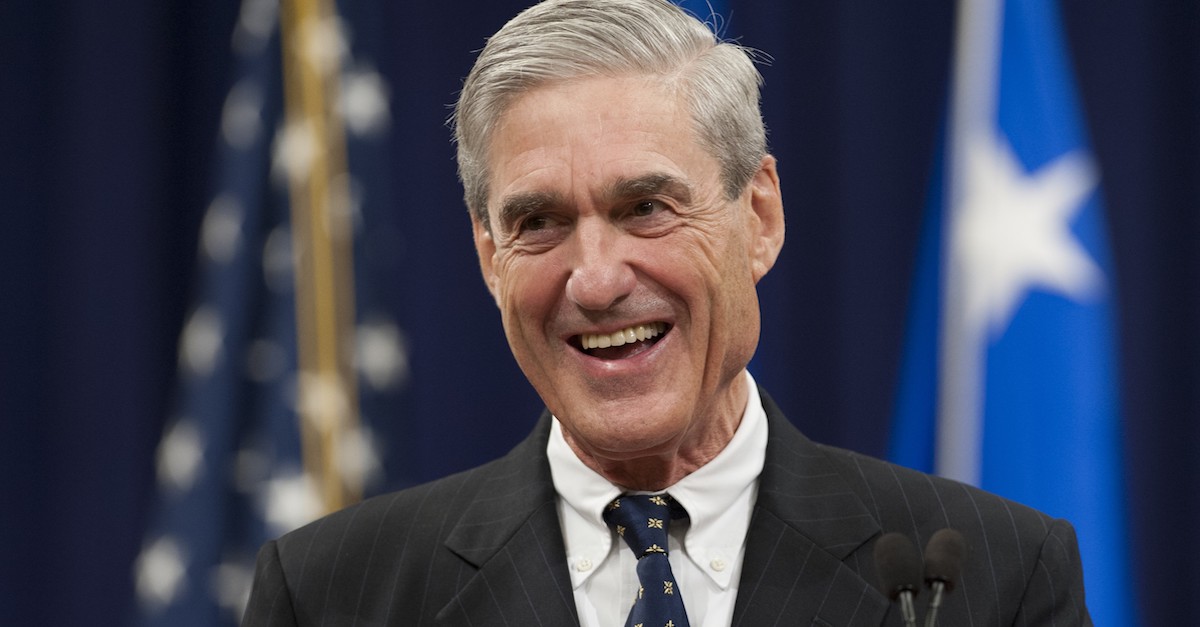
The Department of Justice on Thursday asked the U.S. Supreme Court to halt a lower court’s order requiring the department to turn over secret grand jury materials collected during former special counsel Robert Mueller’s investigation into Russian election meddling. In documents filed with the court, the DOJ argued that abiding by the D.C. Circuit Court’s order to provide the materials to House Democrats would cause the department to “suffer irreparable harm.”
DOJ attorneys said that the circuit court’s decision was based on an incorrect interpretation of a statute that permits courts to authorize the disclosure of materials “preliminarily to or in connection with a judicial proceeding.” According to the DOJ, the grand jury materials were requested by House investigators in connection with the impeachment of President Donald Trump, and impeachment doesn’t constitute a “judicial proceeding.”
Democrats on the other hand argued that precedent had established that the term sustained a fairly broad definition, which would include impeachment proceedings.
The DOJ also claimed that the circuit court’s interpretation of the statute would “create serious constitutional difficulties” with the statutory requirement that parties seeking to unseal grand jury materials demonstrate a “particularized need” for those materials.
“The particularized-need analysis requires a court to assess the ‘contours of the’ legal theory in the judicial proceeding and to weigh the claimed need for the grand jury information against the strong public interest in grand-jury secrecy,” the DOJ wrote. “Yet in the case of a request for such information by a House of Congress or one of its committees in connection with an impeachment trial, that standard would require courts to scrutinize specific legal theories of impeachment and second-guess a coordinate Branch’s assessment of materiality, in likely violation of the House’s ‘sole Power of Impeachment’ and the Senate’s ‘sole Power to try all Impeachments.’”
The DOJ further claimed that it is entitled to a stay on the circuit court’s order because there was a “reasonable probability” that the Supreme Court would reverse the decision. Also, absent a stay, the government would suffer “irreparable harm,” while House investigators would suffer no prejudice, according to the DOJ’s position.
“Because the court of appeals’ interpretation defies the ordinary meaning of the term ‘judicial proceeding,’ creates tension with this Court’s precedents, and rewrites or sets aside other aspects of the Rule in an attempt to avoid substantial constitutional concerns, there is a reasonable probability that this Court will grant certiorari and a fair prospect that it will reverse the decision below,” the DOJ wrote.
“And absent a stay, the government would suffer irreparable harm — for it would have to turn over the grand-jury records, thereby irrevocably surrendering their secrecy and possibly frustrating further judicial review of the merits of this dispute. By contrast, respondent has not identified any urgent requirement for the requested materials in connection with an imminent Senate impeachment trial, and so would suffer no prejudice from a stay.”
See the full DOJ court filing below:
19A1035 DOJ v. HJC Stay Appl by Law&Crime on Scribd
[Image via SAUL LOEB/AFP/Getty Images]